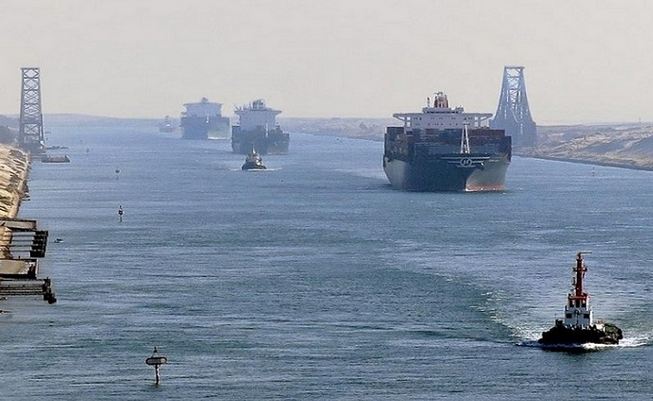The Gulf-Israel rapprochement threatens the Egyptian Suez Canal. It makes it the most significant economic loser. The Gulf states will abolish boycott laws, which will help Tel Aviv activate a desert pipeline to transport oil, withdrawing its agents.
The desert oil pipeline, which connects the port of Eilat on the Gulf of Aqaba in the Red Sea, and the oil tanker terminal in Ashkelon on the Mediterranean, will be the primary beneficiary of the normalisation agreement. With the UAE officially cancelling the decades-long boycott of Israel, the latter is about to play a much larger role in energy trade in the region, oil policies, big business, and oil investments. The length of the desert line, about 158 miles from the Red Sea to the Mediterranean, would be a cheaper alternative to the Egyptian Suez Canal and an option to connect to Arab pipelines that transport oil and gas, not only to the region but to the seaports that supply the world.
Asia Pipeline CEO Isaik Levy said that this pipeline could reduce a large share of oil shipments flowing through the nearby Suez Canal. The advantage of this line over the Suez Canal is the ability of the terminals in Ashkelon and Eilat to accommodate the supertankers that dominate oil shipping today. These supertankers are too large to pass through the Suez Canal.
Breaking the ice
According to Foreign Policy magazine, although much of the hype around the UAE-Israel agreement focused on other sectors such as technology, health care, education, and tourism, the Eilat-Ashkelon pipeline places the deal at the heart of the oil world. The American magazine said, “Now that the Emiratis have broken the ice, the opportunities for Arab-Israeli energy deals are vast and profitable.” It pointed out that the start is from investing in the “Israeli pipeline itself to adapting it to transport natural gas or connect it to pipelines through Saudi Arabia and the wider Middle East.”
Just over 60 years ago, the Eilat-Ashkelon pipeline was a massive construction project aimed at ensuring energy supplies to Israel and Europe in the aftermath of the Suez Crisis of 1956. At that time, the late Egyptian President Gamal Abdel Nasser imposed restrictions on shipping through the canal, which led to the attack of the Israeli, British and French forces against Egypt. Most of the oil flowing through the pipeline was from Iran, which had close, secret relations with Israel for decades during the reign of Shah Muhammad Reza Pahlavi. Ships are known in the field of crude oil as VLCCs, or huge crude tankers which can transport up to two million barrels of oil via this pipeline.
The Suez Canal, which is more than 150 years old, is sufficient in depth and breadth to handle the Suezmax ships, with only half of the giant oil tanker capacity. Consequently, oil merchants have to lease two ships through the canal for every supertanker they send through Israel, with one-way fees through Suez of between $300,000 and $400,000.
Discount
Israel’s Europe Asia Pipeline Company says the pipeline allows Tel Aviv to offer a significant discount. Another 16-inch tube carries petroleum products such as gasoline and diesel, running parallel to this line. According to observers, the line’s work has been carried out over the past several years, one of Israel’s tightly guarded secrets. The means to which Desert Line operatives go to conceal their identities through multiple registration processes and other companies’ concealment methods are “legendary.” They were forced to do that because of the boycott imposed by the Gulf states of oil producers meant that tankers that recognised docking in Israel would be prevented from future loading operations in the Gulf, which would lead to the destruction of their businesses.
The pipeline’s goal is to capture between 12 and 17 per cent of the oil trade that now uses the Suez Canal. Because of the channel’s restrictions, much of the Gulf’s crude destined for Europe and North America is pumped through the Suez-Mediterranean pipeline (known as the Sumed line) in Egypt, in which Saudi Arabia and the UAE have a stake. However, the Egyptian pipeline only operates in one direction, making it less useful than its Israeli competitor, which can also handle, for example, Russian or Azerbaijani oil bound for Asia. Thus, according to the American magazine, Egypt will be the loser with weak business and less control over prices.









